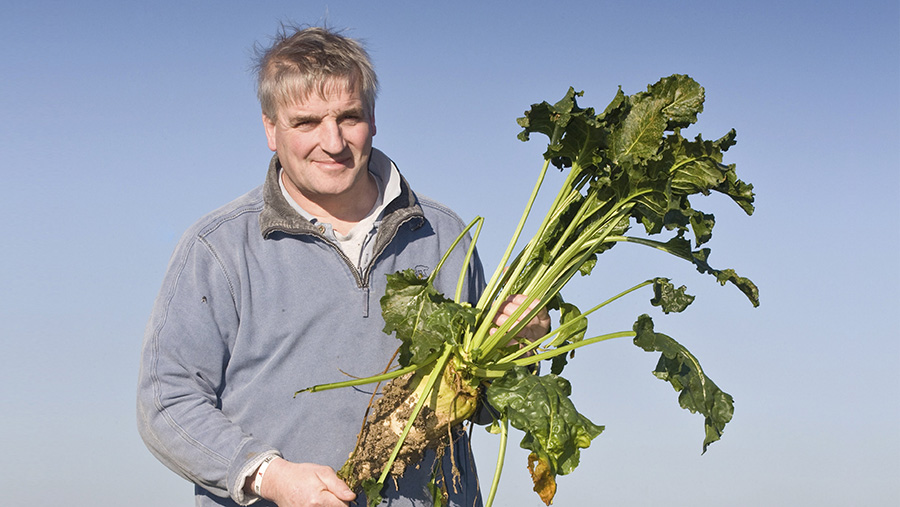Farmer Focus: Sugar beet yields better than expected
 Robert Law ©Tim Scrivener
Robert Law ©Tim Scrivener As the end of 2016 looms on the horizon, you start to reflect on events that have happened on and off the farm.
Obviously the Brexit referendum result and that of the recent US election have already affected UK farming and will continue to do so for some time.
So far the main effects have been financial, with currency rates moving to reflect uncertainty being created by both events.
However, this focus will switch to concerns about future agricultural policy outside the EU.
Entry into longer-term environmental stewardship schemes has already been an area where uncertainly has been felt by UK farmers and land managers.
Read more from our Arable Farmer Focus writers
I heard yesterday that 2016 is on target to be the warmest year ever and here at Royston, we have had less than 400mm of rainfall so far this year, with less than six weeks to go. So it is likely that we will be some way off our annual average of 580mm.
All autumn cereals have more or less got themselves established on our light soils, but I only have to travel a couple of miles to view stronger soils, farmed by my neighbours, where crop establishment has been somewhat variable.
We have completed our first lift of sugar beet and due to the exceptional conditions were able to turn around and drill the whole area with rye within a day of completing harvest.
The beet crop exceeded expectations, both for yield and sugar content. With the Brexit-enhanced price of £21.62/t, the margin achieved by this crop still exceeds all the alternatives for us on our farms.
This “enhanced” price of £21.62 is still behind the 1980 contract price of £22.52, but the yield in 2016 has been 230% higher than that achieved 36 years ago.
Yield increases in the beet crop have been greater since 1980 than any other broad-acre crop and has been the main driver for keeping the crop viable.
The demise of oilseed rape growing in this area over the past three years has brought renewed interest in growing beet. This includes new growers taking a contract on for 2017, existing growers increasing their areas and others who have had a break from the crop for a few years coming back in.
With our increased farming areas, both here at Royston and in Nottinghamshire, in 2017 we will be taking on more beet tonnage.
Robert Law farms 1,700ha on the Hertfordshire, Cambridgeshire and Essex borders growing cereals, mustard, a range of forage crops for seed, sugar beet, up to 200ha of catch crop stubble turnips and 300ha of grass supporting a flock of 2,500 ewes. All land farmed is in environmental stewardship schemes. He also manages 500ha of sandland in Nottinghamshire.
